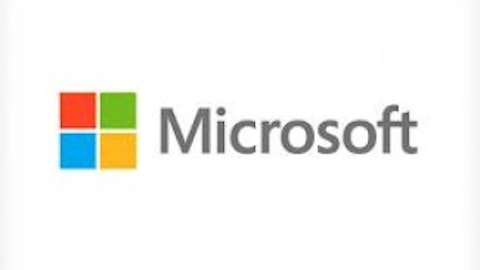Steam is an online store for PC games. It sells digital versions of popular games, and it’s business model is roughly equivalent to Apple‘s iTunes.
During GameStop Corp. (NYSE:GME)‘s earnings call on Tuesday, management bragged about the amount of Steam gift cards the company had sold in the previous quarter. This would be like a Borders executive, back in 2009, boasting about the amount of Amazon giftcards his company sells.

GameStop Corp. (NYSE:GME) will benefit from the upcoming console refresh — demand for the next generation of consoles from Microsoft Corporation (NASDAQ:MSFT) and Sony Corporation (ADR) (NYSE:SNE) should bring more consumers through GameStop’s doors.
But long term, GameStop Corp. (NYSE:GME) remains heavily exposed to a shift taking place in the sector. Games are going digital, and this trend is only being exacerbated by the new consoles.
GameStop looks great in the near-term
In the immediate future, GameStop Corp. (NYSE:GME)’s business looks great. Both Sony Corporation (ADR) (NYSE:SNE) and Microsoft Corporation (NASDAQ:MSFT) will release their next video game consoles this holiday season, and both could sell exceptionally well.
Microsoft Corporation (NASDAQ:MSFT)’s last console, the Xbox 360, was released in 2005, while Sony Corporation (ADR) (NYSE:SNE)’s PlayStation 3 came out in 2006. This 7-8 year console refresh cycle is unprecedented in the industry — prior to that, new consoles had generally been released every five or six years.
GameStop Corp. (NYSE:GME) has said it’s seeing a tremendous amount of excitement surrounding the new consoles — and that makes sense, there’s likely some pent-up demand among gamers.
The problem is that this next batch of consoles will be unlike their predecessors. Their level of reliance on the Internet — and hence the digital distribution of games — will be far greater than past consoles.
The Xbox One could be the last Xbox you ever need to buy
Initially, Microsoft Corporation (NASDAQ:MSFT) was planning to make the Xbox One the most digital console ever. If it had stuck to its plans, owners of the Xbox One would’ve had to keep their consoles connected to the Internet at all times.
Xbox One games would still exist in physical form, but the disc itself would be largely unnecessary. Games were to be installed onto the system, like PC software, and then tossed aside — making it difficult, if not impossible, to resell games.
After widespread consumer backlash, Microsoft Corporation (NASDAQ:MSFT) has backed away from these plans. The Xbox One will, like the other Xboxes before it, play disc-based games from the actual disc, and will not require a constant Internet connection.
All good for GameStop, right? Well, not really. For starters, Microsoft clearly sees the advantages in pushing digital games. It might not be able to do it right now, but it seems reasonable to expect the company to try again in the future.
But more importantly, the Xbox One could be the last console gamers ever buy. As the Official Xbox Magazine notes:
Sure, the basic hardware will date, but cloud computing offers near-limitless potential-and as broadband connections are only going to get better, by the time the Xbox One starts to look like it’s running low on horsepower or storage space, you’ll be able to hand the job off to the Xbox Live servers rather than having to upgrade.
With the Xbox One, Microsoft is pushing the power of cloud computing. Microsoft has invested in thousands of servers its making available to game developers. At first, utilization of these servers should be limited, but eventually, games could come to exist wholly in the cloud.
When that happens, there will be no reason to buy a physical version of the game — it will exist purely in digital form.





